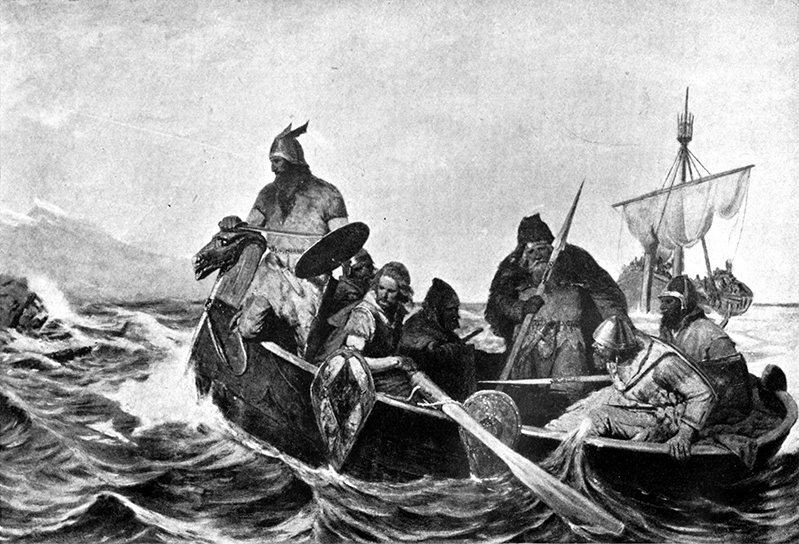
History books usually portray the Vikings as Scandinavian raiders who used boats to pillage villages across Europe and enslave its inhabitants. However, a new archaeological dig in Iceland has challenged that stereotypical point of view.
According to Kristina Killgrove of Forbes, the Vikings originally settled in Iceland around A.D. 825 based on legend and converted to Christianity in A.D. 1000. Bioarchaeologists Guđný Zoëga and Kimmarie Murphy studied their lives through the lens of Icelandic burial customs, and their article on the topic has been published in the International Journal of Osteoarchaeology.
"Burials were examined from the late Viking Age early medieval Christian cemetery at the farm of Keldudalur in the Skagafjörður region, Northern Iceland," Zoega and Murphy wrote. "The cemetery likely served a single household for about 100-120 years, from the beginning of the 11th century A.D. to the turn of the 12th century. Cemetery inhabitants represent a population that lived through the transitional period when Christianity was established in Iceland."
According to the article's abstract, the burials, which also documented the transition from paganism to Christianity, had 53 "well-preserved skeletons of 27 adults and 26 sub-adults."
"Various factors such as fluctuating climate and environmental conditions, and seasonal or periodical availability of resources have the potential for impacting human diet and health over time," Zoega and Murphy wrote. "Results suggest that inhabitants of Keldudalur experienced periodic stress and rigorous living conditions. Infant mortality was great, although if individuals survived childhood, the age expectancy was fairly high."
Killgrove reported that early Icelanders were pastoral farmers who planted grain and raised sheep and cattle. The bioarchaeologists looked at their health conditions based on the status of the bones and found that many of them suffered from "porotic hyperostosis, a condition that results from anemia and typically shows up as holes in the cranium."
"Since these Icelanders were eating a lot of meat, their anemia was unlikely caused by iron-deficiency anemia; rather, they may have had other gastrointestinal infections or dietary deficiencies," Killgrove wrote. "One child even shows a pattern of porous bone suggesting he or she had scurvy."
Zoega and Murphy pointed out from their research that many of the adults in Keldudalur suffered from degenerative joint disease, which was likely the result of farming in a harsh environment.
"Men and women were equally affected by joint disease, meaning everyone pitched in on this small family farm," Killgrove wrote. "Older people had more instances of joint disease, but since arthritis is a progressive condition, this is unsurprising."
According to Killgrove, the bioarchaeologists speculated from data collected at the dig that the people consumed large amounts of dairy in their diet, which would explain the lack of dental cavities.
"Before you trade your toothbrush for a hunk of cheese, though, excessive dairy consumption can lead to gingivitis, plaque, and infections and tooth loss," Killgrove wrote. "The adults from Keldudalur had these in spades."
Although she is not affiliated with the study, bioarchaeologist Cecilia Collins told Killgrove that the research at Keldudalur was "another important piece in understanding the lives of families and communities on the edge of the Arctic." She contended that it also challenged "the stereotype of the marauding and violent Vikings."
"It's fascinating to imagine this place in transition from pagan faith to accepting Christianity, even to the point of reburying the remains of pagans in the church cemetery," Collins said.
Based on their research, Zoega and Murphy concluded that the inhabitants of Keldudalur were "a population living and adapting to a harsh and periodically resource scarce subarctic environment." Killgrove added that more studies could be conducted on the skeletal collection to find out more about the lives of early Christians in northern Iceland.






